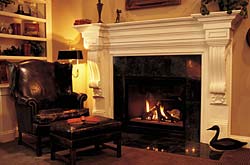Keep Your Cool This Summer
See if We Have Top-Rated
HVAC Contractors in Your Area

Installing or replacing a central air conditioner? You can save energy and money—and stay cool—by buying an energy-efficient model.
Today's most efficient air conditioners use 30 to 50 percent less energy than 1970s-vintage air conditioners to generate the same amount of cooling. Even if your air conditioner is only 10 years old, replacing it may save up to 40 percent in energy costs.
Consider these key factors when shopping for central air conditioning:
Proper sizing.
Match the right unit to cool your home efficiently. A unit that's too large will not adequately remove humidity; one that's too small won't cool enough on the hottest days.
Seasonal energy efficiency ratio (SEER).
This measure indicates the relative amount of energy needed to provide a specific cooling output. Look for a model with a high SEER. Many older systems have a SEER of 6 or lower. Residential central air conditioners made since January 2006 must have a SEER of 13 or higher.
Unit location, insulation, duct installation and other factors also affect air-conditioning efficiency. An experienced contractor can recommend a system that's best for your home.
Don't live without air conditioning! Use this link to hire a local
HVAC ContractorCentral Air Conditioner Cost-Effectiveness Example
| PERFORMANCE | BASE MODEL | RECOMMENDED LEVEL | BEST AVAILABLE |
| SEER | 10.0 | 13.0 | 16.5 |
| Annual Energy Use | 3,600 kWh | 2,770 kWh | 2,180 kWh |
| Annual Energy Cost | $216 | $166 | $131 |
| Lifetime Energy Cost (15 years) | $2,350 | $1,800 | $1,420 |
| Lifetime Energy Cost Savings (15 years) | -- | $550 | $930 |
Annual energy use in this example is based on the standard U.S. Department of Energy test procedure for a model with a cooling capacity of 36,000 Btu/hour and 1,000 cooling load hours per year. The assumed federal average electricity price is 6 cents per kWh, including demand charges. Source: U.S. Department of Energy.
More Tips & Advice For Your Home
- Recent Articles

